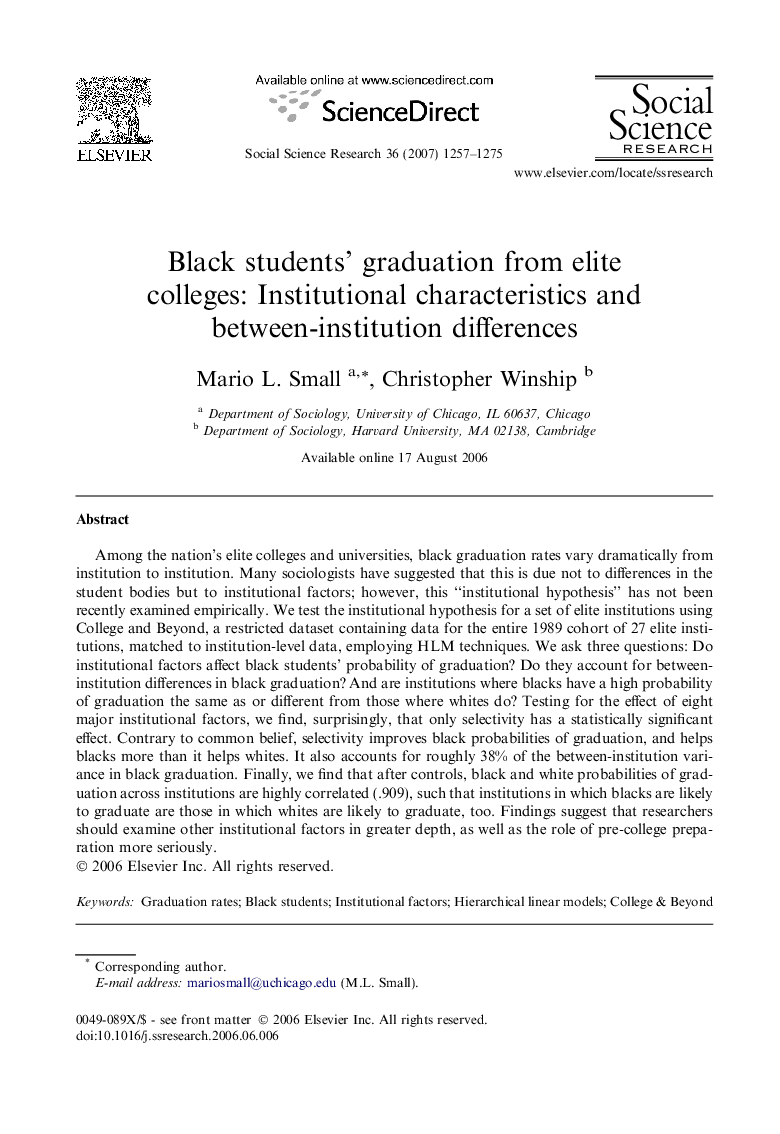| Article ID | Journal | Published Year | Pages | File Type |
|---|---|---|---|---|
| 956545 | Social Science Research | 2007 | 19 Pages |
Abstract
Among the nation's elite colleges and universities, black graduation rates vary dramatically from institution to institution. Many sociologists have suggested that this is due not to differences in the student bodies but to institutional factors; however, this “institutional hypothesis” has not been recently examined empirically. We test the institutional hypothesis for a set of elite institutions using College and Beyond, a restricted dataset containing data for the entire 1989 cohort of 27 elite institutions, matched to institution-level data, employing HLM techniques. We ask three questions: Do institutional factors affect black students' probability of graduation? Do they account for between-institution differences in black graduation? And are institutions where blacks have a high probability of graduation the same as or different from those where whites do? Testing for the effect of eight major institutional factors, we find, surprisingly, that only selectivity has a statistically significant effect. Contrary to common belief, selectivity improves black probabilities of graduation, and helps blacks more than it helps whites. It also accounts for roughly 38% of the between-institution variance in black graduation. Finally, we find that after controls, black and white probabilities of graduation across institutions are highly correlated (.909), such that institutions in which blacks are likely to graduate are those in which whites are likely to graduate, too. Findings suggest that researchers should examine other institutional factors in greater depth, as well as the role of pre-college preparation more seriously.
Related Topics
Social Sciences and Humanities
Psychology
Social Psychology
Authors
Mario L. Small, Christopher Winship,
